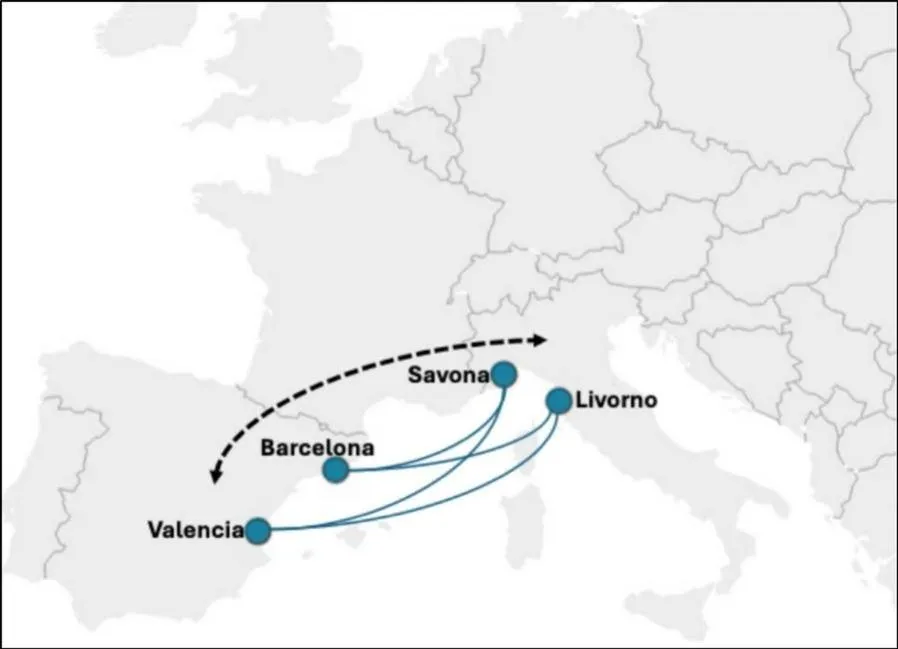New Study Examines Potential Effects of EU Emission Trading System on Short-sea Shipping
AnalysisMonday, 20 October 2025 at 13:56

This is an abstract from a Research Article by Julián Martínez-Moya, María Feo-Valero, and Amaya Vega. Published in volume 149 of Transportation Research Part D: Transport and Environment. You can read the full article here.
The introduction of the Emission Trading System (ETS) to the European port and maritime industry has raised concerns about its effects on intra-European modal traffic patterns. Higher costs for short-sea shipping (SSS) could prompt a shift back to road transport for shipments that previously relied on maritime routes. This paper examines the potential effects of the EU ETS on SSS demand along the Spain–northern Italy corridor, using stated preference data and advanced discrete choice models (MDCEV). In this corridor, the coexistence of climate policies (EU ETS) and transport measures (Eco-incentive)—which have conflicting effects on the price competitiveness of SSS—makes the assessment of their combined impact particularly relevant. The findings suggest that full implementation of the EU ETS could lead to a diversion of up to 25 % of maritime traffic to road transport. However, the presence of the Eco-incentive could help mitigate this shift.
Popular news
Latest Comments
Loading